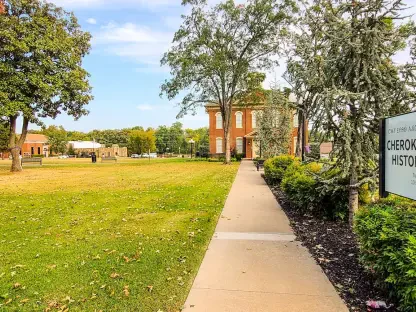Navigating the complex world of finance can feel like scaling a steep mountain for many college students, but at Williams College, finance clubs are turning that climb into a guided journey with breathtaking views, offering vital platforms for aspiring professionals. These student-led organizations serve as essential spaces where individuals can immerse themselves in practical financial strategies while forging critical skills and lasting connections. Through the compelling experiences of Rebecca Bao ’28, Maxwell Burd ’28, and William Chang ’28, a vivid picture emerges of how these clubs transform academic curiosity into real-world readiness. Far from being mere extracurricular activities, they act as incubators for future leaders, bridging the gap between theoretical knowledge and professional application. This exploration delves into the structure, benefits, challenges, and invaluable advice surrounding these groups, shedding light on their profound impact on student development.
Inside the Framework of Campus Finance Organizations
Unique Structures with a Common Purpose
At Williams College, finance clubs such as Williams Investment Group (WIG), Williams Insight, and Purple Mountain Partners stand out as specialized arenas for students eager to dive into the financial sector. Each club carves its own path—WIG manages a significant portfolio within the college’s endowment, offering hands-on investment experience with real funds. Meanwhile, Williams Insight operates as a think tank, engaging members in deep discussions on financial and political topics, often culminating in published analyses. Purple Mountain Partners, though not formally registered, focuses on real-world investing with contributions from experienced upperclassmen. Despite their distinct approaches, these organizations share a unified mission: to equip students with practical skills and insights for finance careers. This diversity ensures that whether a student is drawn to direct investment or analytical discourse, there’s a fitting avenue to explore their interests and grow professionally.
Building Real-World Experience from the Ground Up
The operational dynamics of these clubs provide a rare opportunity for students to engage with finance in a tangible way, far beyond textbook learning. In WIG, for instance, members regularly pitch stocks and make collective decisions on investments, simulating the high-stakes environment of professional fund management. This mirrors the kind of decision-making seen in corporate settings, giving participants a taste of real responsibility. Williams Insight, on the other hand, hones critical thinking through weekly debates on current affairs, sharpening members’ ability to analyze complex issues. Purple Mountain Partners adds another layer by involving personal investment accounts, fostering a personal stake in financial outcomes. Together, these structures create a robust framework where theoretical concepts are tested against real-world scenarios, preparing students for the unpredictability of the finance industry with a grounded, practical perspective.
Advantages of Engaging with Finance Clubs
Sharpening Skills Through Practical Application
Participation in Williams College finance clubs offers students a direct line to developing critical technical skills that are indispensable in the financial world. For members of WIG and Purple Mountain Partners, the process of crafting and evaluating stock pitches stands as a cornerstone of their learning. This activity not only teaches the intricacies of market analysis but also hones the ability to present complex ideas persuasively, a skill that Maxwell Burd notes parallels the demands of professional equity research roles. The hands-on nature of managing actual funds adds a layer of accountability, pushing students to think critically about every decision. Beyond the numbers, these experiences cultivate a deeper understanding of risk and reward, equipping participants with a nuanced perspective that can’t be gleaned from lectures alone. This practical immersion ensures that students step into internships or jobs with a solid foundation already in place.
Fostering Bonds and Guidance Through Mentorship
Beyond technical expertise, the sense of community and mentorship within these clubs plays a pivotal role in shaping students’ journeys. In organizations like Williams Insight and Purple Mountain Partners, structured mentorship programs pair underclassmen with seasoned upperclassmen for personalized guidance. William Chang emphasizes the value of these one-on-one interactions, often held over casual coffee chats, which provide tailored advice on everything from internship applications to long-term career planning. This system creates a supportive network that mitigates the often daunting nature of entering the finance field. The relationships built through these interactions foster a collaborative spirit, helping to ease anxieties and build confidence. As students navigate the competitive landscape of finance, having mentors who have walked the same path offers not just practical tips but also emotional reassurance, making the pursuit of ambitious goals feel more attainable.
Perceptions and Obstacles in the Finance Sphere
Confronting Stereotypes and Misconceptions
One of the significant hurdles faced by students in finance clubs at Williams College is the pervasive stereotype of the industry as a ruthless, hypercompetitive arena often caricatured by the “finance bro” image. Rebecca Bao, Maxwell Burd, and William Chang all acknowledge this external perception, which paints finance as a field driven solely by profit and aggression. However, they counter this narrative by highlighting the collaborative ethos within their campus community. Burd, in particular, reframes the stereotype, suggesting that being a “finance bro” at Williams means having a thoughtful, passionate engagement with the subject rather than embodying superficial traits. This internal culture strives to prioritize learning and mutual support over cutthroat rivalry, challenging the broader assumptions about what it means to pursue a career in this field. Such efforts signal a shift toward a more inclusive and intellectually driven approach.
Redefining the Culture Within a Liberal Arts Context
Within the unique setting of a liberal arts institution like Williams College, finance clubs are actively working to reshape the cultural narrative surrounding their field. The emphasis on interdisciplinary learning at the college allows students to blend their financial pursuits with broader academic interests, creating a more holistic approach to professional development. Bao points out that the supportive environment encourages collaboration over competition, a stark contrast to the external view of finance as an unforgiving domain. This setting enables members to explore diverse perspectives, ensuring that their engagement with finance is not one-dimensional but enriched by varied intellectual influences. Chang adds that the genuine curiosity driving club members helps to dismantle the notion of finance as merely profit-driven, replacing it with a focus on skill-building and personal growth. This cultural redefinition is crucial in making the field more approachable for a wider range of students.
Practical Tips for Aspiring Club Members
Preparing for a Competitive Entry Process
For students at Williams College considering involvement in finance clubs, current members offer actionable strategies to navigate the competitive selection process. William Chang advises applying to multiple organizations while clearly articulating personal motivations for joining, underscoring the importance of thorough preparation to stand out. Maxwell Burd complements this by suggesting that a foundational grasp of finance concepts, coupled with staying informed on market trends, can help applicants identify a unique niche during interviews. This preparation demonstrates not just interest but readiness to contribute meaningfully to the club’s activities. The competitive nature of these groups means that prospective members must approach the process with diligence, ensuring they present themselves as committed and knowledgeable. Such steps can significantly boost the likelihood of acceptance into these transformative organizations.
Overcoming Initial Barriers with Authenticity
The intimidation factor surrounding finance often deters potential members, but advice from current students seeks to break down this barrier with reassurance and practical guidance. Rebecca Bao addresses the perception of finance as an exclusive, mysterious realm, often tied to the daunting prospect of breaking into high-profile careers. She counters this by explaining that core activities like stock pitching are straightforward and accessible once understood, demystifying the process for newcomers. Her encouragement to “be yourself” during applications and interactions highlights the value placed on authenticity within these clubs. Personality and genuine passion often weigh as heavily as technical knowledge, making it essential for students to present their true selves rather than conforming to preconceived notions of what a finance enthusiast should be. This approach not only eases the initial fear but also fosters a more inclusive environment where diverse voices can thrive.
Reflecting on a Path Forward
Looking back, the journey through Williams College finance clubs, as shared by students like Rebecca Bao, Maxwell Burd, and William Chang, paints a vivid tapestry of growth and opportunity. These organizations prove to be more than just resume builders; they are crucibles where skills are forged, stereotypes are challenged, and communities are nurtured. For future students, the path forward involves taking proactive steps—diving into these clubs early, seeking mentorship, and embracing the learning curve with an open mind. Engaging with resources like workshops or alumni networks can further enhance the experience, while staying attuned to evolving market dynamics ensures relevance. The legacy of these clubs lies in their ability to transform intimidation into empowerment, offering a blueprint for success that balances technical prowess with personal connection. As new generations step into this space, the focus should remain on cultivating an inclusive culture that continues to redefine what finance means within a liberal arts framework.









